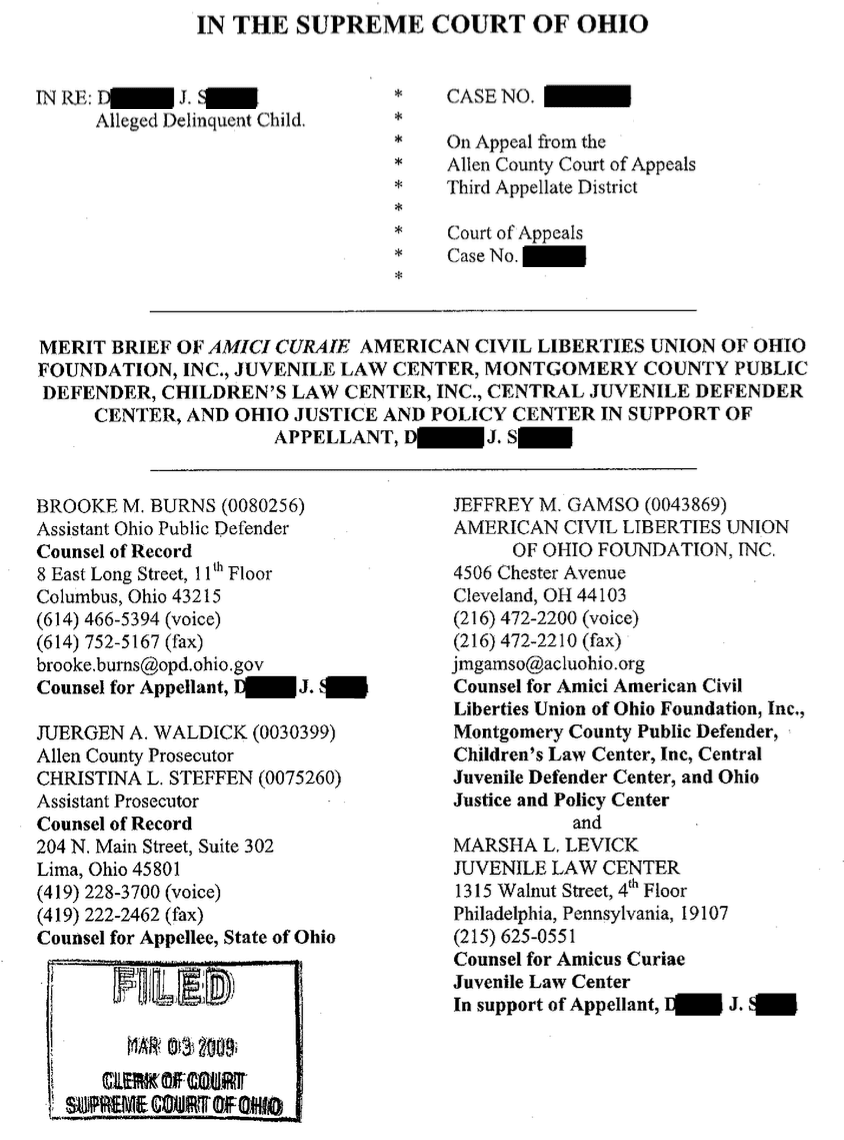
Summary of Argument
Proposition of Law: Determination of classification, registration, and notification requirements for juvenile sexual and child-victim offenders under Ohio's version of the Adam Walsh Act is committed to the discretion of the juvenile court. Juveniles can only be reclassified under that law by a juvenile court in the exercise of that discretion and after a hearing to determine which classification is appropriate.
Classification of juveniles adjudicated delinquent for sex or child-victim offenses is left to the discretion of the juvenile court. Since its inception, the juvenile court has exercised broad discretion to promote the rehabilitation of child offenders. The founders of the juvenile court granted the court broad discretion to promote the rehabilitation of child offenders. While the juvenile court's discretion has declined in recent years, the court nevertheless continues to exercise significant discretion. Recent scientific developments underscore the need for broad juvenile court discretion. Insofar as S.B. 10 might deprive juvenile courts of discretion in determining in which tier a juvenile offender should be classified, it would interfere with the court's ability to perform its core function.